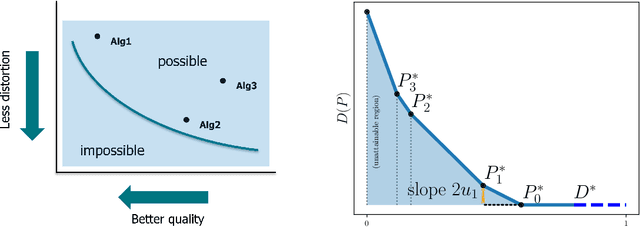Characterization of the Distortion-Perception Tradeoff for Finite Channels with Arbitrary Metrics
Paper and Code
Feb 03, 2024

Whenever inspected by humans, reconstructed signals should not be distinguished from real ones. Typically, such a high perceptual quality comes at the price of high reconstruction error, and vice versa. We study this distortion-perception (DP) tradeoff over finite-alphabet channels, for the Wasserstein-$1$ distance induced by a general metric as the perception index, and an arbitrary distortion matrix. Under this setting, we show that computing the DP function and the optimal reconstructions is equivalent to solving a set of linear programming problems. We provide a structural characterization of the DP tradeoff, where the DP function is piecewise linear in the perception index. We further derive a closed-form expression for the case of binary sources.
 Add to Chrome
Add to Chrome Add to Firefox
Add to Firefox Add to Edge
Add to Edge